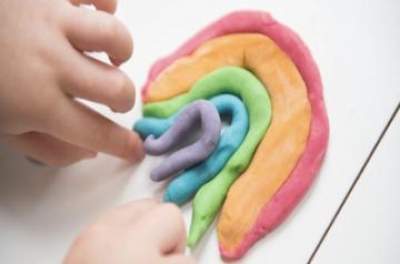New Delhi (IANSlife) When it comes to kid’s toys, who doesn’t know Play-Doh? Play-Doh is loved by toddlers and children alike, and more often than not, even adults can’t resist themselves from engaging in this fun activity! With umpteen learning and sensory benefits, Play-Doh aids imagination and growth, allowing children to experiment with colours, shapes, and textures. While Play-Doh’s safe and non-toxic ingredients make it a preferred choice amongst parents, this activity has more to offer than meets the eye! Here are some fun facts you probably didn’t know about Play-Doh shared by Dr. Wilona Annunciation, MD, Consultant Psychiatrist and Founder of CATALYSTS:
Enhances Motor Development
Moulding, rolling, squishing, flattening, cutting and chopping are some of the many ways in which children engage with Play-Doh. These activities can help strengthen their muscles, improve dexterity, and allow them to develop hand-eye coordination and fine motor skills.
Such activities prove to be extremely beneficial during their early learning stages and preschool years, as it allows them to develop their finger muscle grip and strength before they even learn to write.
Creativity and Imagination
Play-Doh encourages and inspires your children to kindle their imagination. Since Play-Doh comes in no shape or form, children can fully immerse themselves in the activity, while exploring the infinite possibilities of creating whatever they want- be it objects they come across in day to day life, or something completely unique. This practice of moulding something from a mental image to shape can boost their imagination and allow them to enjoy the process of creating something of their own. With time, their creations only tend to become more detailed and creative!
Boosts curiosity and knowledge
Mixing two different colours of dough and discovering a new colour, or forming different shapes with Play-doh, stimulates the curiosity of children and encourages them to question things, thereby aiding overall cognitive development and knowledge. While experimenting with Play-Doh, children learn by observing, thinking, executing new ideas, and solving problems, important for their critical reasoning later. So, the next time your child asks for Play-Doh, not only encourage them, but also participate in the play with them to help them learn the most from it.
Concentration
One of the most important skills that Play-doh allows children to develop is a good attention span. Toddlers and children are usually restless, and may often want to play with a number of toys at once or run around the house. With the current challenges with screen time, attention spans are only growing shorter. But this activity entails them to sit in one place for long periods of time, gradually increasing their concentration span. The more invested they are in their work and creation, the longer they will push themselves to remain focused.
In addition, children also develop a sense of perseverance that helps them concentrate until their creation looks just about perfect.
Therapeutic engagement
Moulding the dough into different shapes, squishing it, and feeling the texture, can be an extremely positive and rewarding experience for children. Energetic, restless and anxious children can learn how to relax, and release their energy in a contained matter while immersing themselves in this fun activity. Similarly, if a child is angry or aggressive, Play-Doh can act as an excellent support, helping them calm down and share their experiences through play. Play-Doh is optimal for soothing a child and transitioning them from noisy play to quiet time and relaxation.
Sensory Development
Play-Doh offers an amazing opportunity for children to develop their senses! Along with visual stimulation, Play-Doh helps children experience different textures and scents. Since Play-Doh is all about hands-on exploration, children learn to experiment with textures and consistencies, while using cookie cutters, scissors, and other toys. One simple activity of playing with Play-Doh can stimulate various senses and offer development of fine and gross motor skills, language development, aid communication skills and social interaction, and enable problem solving in a way that is both fun and safe for children of all ages!

